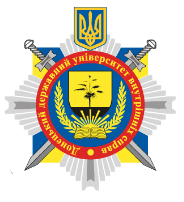ORGANIZATIONAL AND LEGAL DETERMINANTS AFFECTING CRIMINAL OFFENSES IN UKRAINE
DOI:
https://doi.org/10.32782/2709-9261-2024-2-10-8Keywords:
criminal offense, crime, misdemeanor, determinants, crime, prevention, criminal legislation, criminal law policy, investigationAbstract
The article examines the organizational and legal determinants affecting the commission of criminal offenses in Ukraine. It is indicated that the dynamism of criminal legislation inevitably leads to the formation of new criminal law institutions, one of which is the institution of criminal misdemeanors. It is logical that the emergence of a new institution within the scope of substantive law presupposes similar ones – in procedural law. In most cases, the legislator makes mistakes during the formation of the mechanism of interaction of such institutions with each other, which results in the emergence of organizational and legal factors that exert a secondary influence on the dynamics of criminal offenses in the country. Organizational and legal reasons and factors form a platform for the emergence of other deterministic complexes. It is noted that the creation of the institute of misdemeanors in Ukraine, despite the preservation and observance of the general trend towards European integration, in some cases laid the groundwork for the intensification of criminogenic threats caused by an insufficiently effective criminal law policy, as well as the unjustified humanization of certain norms of the Special part of criminal legislation. The unformed approach to the application of criminal repression and its unjustified limits lead to an unargued limitation of the rights of citizens, in particular, within the scope of the administration of justice by national judicial bodies. It is concluded that currently the Institute of Criminal Misdemeanors does not fully fulfill the tasks assigned to the national criminal legislation. The positioning of criminal misdemeanors within the framework of the humanization of criminal law policy leads to an increase in the quantitative indicators of crime, which is due to the peculiarities of the criminal procedural nature, as well as the order of bringing to criminal responsibility and the limits of repression, which is applied to persons who have committed such illegal acts.
References
Балобанова Д.О. Детермінанти динаміки кримінального права в умовах глобалізації. URL: http://lsej.org.ua/5_2022/109.pdf.
Хавронюк М. Проступок, його сутність і порядок досудового розслідування та судового розгляду: новітні середньоазійські підходи у порівнянні із вже відомими. URL: https://newcriminalcode.org.ua/upload/media/2020/07/27/havronyuk-mi-prostupok-jogo-sutnist.pdf.
Кримінальний кодекс України від 05.04.2001 р. № 2341-III. URL: https://zakon.rada.gov.ua/laws/show/2341-14#Text.
Назимко Є., Тарасенко О. Кримінально-правові та кримінальні процесуальні засади запобігання колабораційній діяльності. Протидія проявам тероризму та колабораціонізму в умовах війни: стан та перспективи: матеріали Всеукр. круглого столу (м. Кропивницький, 24 листопада 2023 року ; Донецький державний університет внутрішніх справ). Кропивницький, 2023. С. 11–16.
Висновок генерального директорату з прав людини та верховенства права Ради Європи стосовно проекту закону № 7279 про внесення змін до деяких законодавчих актів України щодо спрощення досудового розслідування окремих категорій кримінальних правопорушень. URL: https://rm.coe.int/coe-ukraine-law-on-misdemeanours-oct-2018-final/16808eaeaf.
Черниченко І. В. Кримінальний проступок: рішення європейського суду з прав людини проти України (частина 2). URL: https://is.gd/raetkP.





